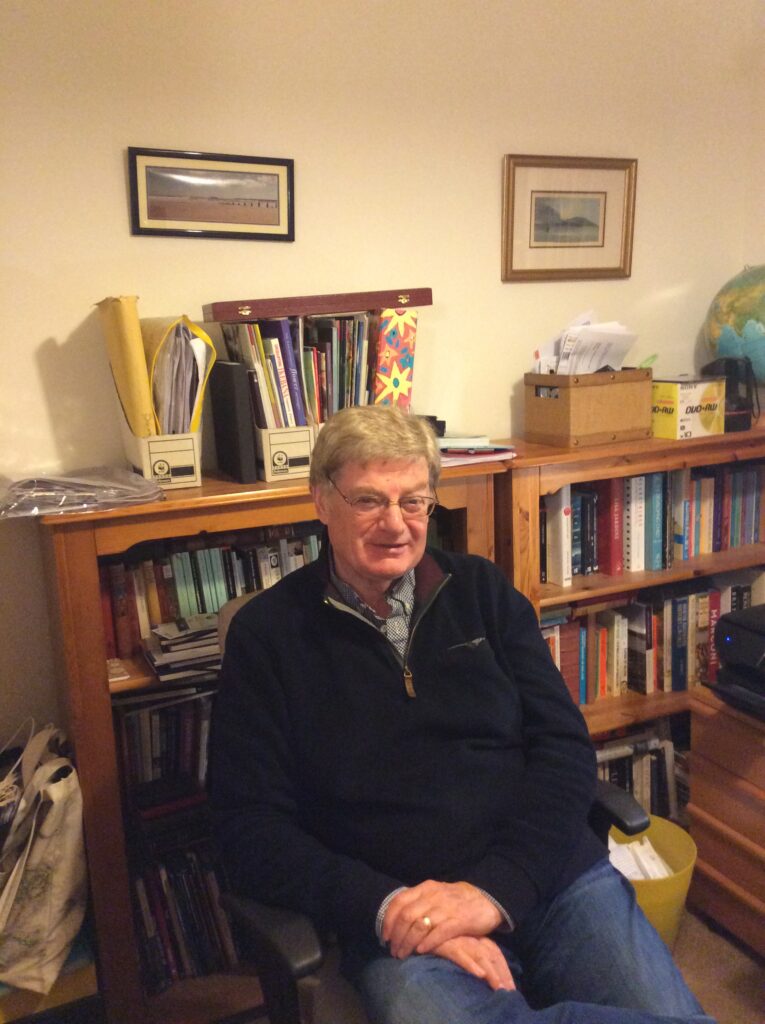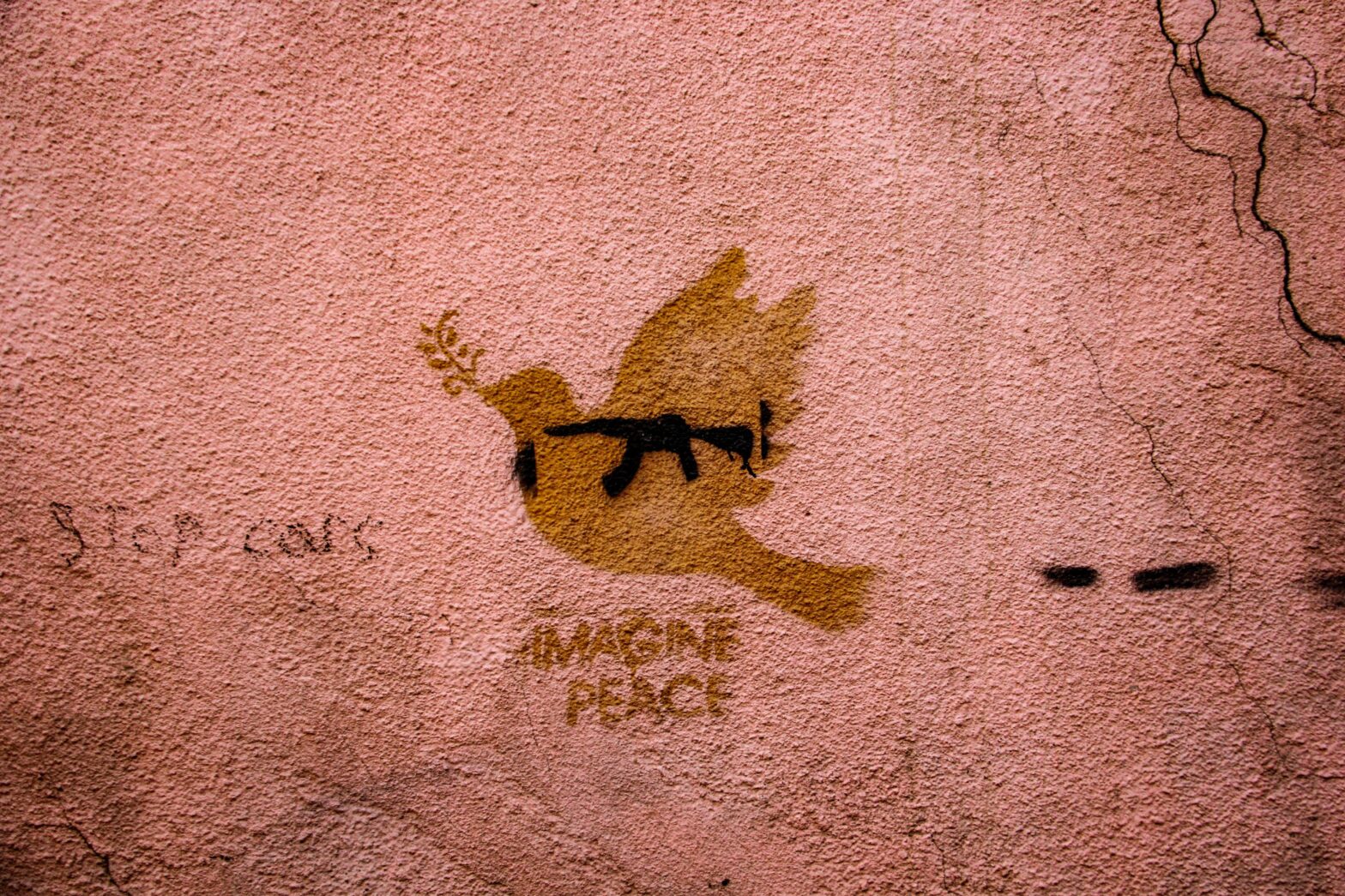10 February 2022
Is this the way to do it?
By Paul Branch

They say nature abhors a vacuum and will do anything to fill it. Likewise with a breakdown in communications: someone will step in to fill the gap, but usually to their own benefit. We have a couple of glaring examples here and now. Joe Biden and Vladimir Putin are at distant loggerheads over Ukraine and seem to be talking across one another, through a foghorn of resonant rhetoric, each blaming the other for stoking up the temperature of international discord. Biden and Xi Jinping also are in each other’s faces, again at a distance, shouting about but not exactly talking about touchy subjects like human rights and Taiwan. Biden’s mates in the various western alliances are cheering him on at full volume in both cases: NATO, the EU and UK seemingly talking up the prospects of war with Russia; Australia, New Zealand and the UK boycotting senior diplomatic attendance at the Beijing Winter Olympics.
The common factor in these fractious relationships is Biden, or rather the US with all its wealth and destructive power, the flag bearer of a failed democracy, the common foe of the others in the race to the top of the pile for global economic and political domination. Russia and China see an ideal opening by which to cement their joint hostility towards the West, as well as appeasing and distracting their mass audiences back home. Where better to proclaim their unified intent and put one over their old enemy than in the publicity glare of the Beijing winter games?
Putin will have been overjoyed to be greeted in person by Xi as the star of the opening ceremony, and vice versa. What a golden opportunity to proclaim the major philosophical principles shared by these two world leaders, despite some prior minor ideological differences best forgotten. Russia agrees that China is fully entitled to lay claim to Taiwan. China agrees that Russia is acting appropriately against the encroachment by the US on Russia’s rightful sphere of influence. Both agree that the US should keep its nose firmly out of their internal affairs. The irony is that this has been presented gift-wrapped and on a plate by stentorian and some might say sanctimonious US diplomacy.
It’s difficult to see how the grandstanding, box-ticking stance adopted by the US and its allies can help Ukraine, Taiwan or the Uyghurs. But one voice inside a particularly cool head seems to be on a different tack to his Western alliance colleagues: that of Emmanuel Macron, currently rotating President of the EU, although he too has his own audience at home with French elections looming. His stance towards both Russia and China seems to be one where you do indeed need to make a firm statement and adopt a firm position, but not keep banging on until it becomes just one more source of irritating background noise.
Macron had spoken to Putin by phone a few times already last week, and on Monday flew to Moscow and then on to Kyiv for face-to-face talks, with an indication that he appreciates Putin’s problem with the current NATO weapons deployment so close to Russia’s borders. He also indicated that he had the solution to de-escalating the crisis and preventing more bloodshed in Ukraine, which comes across as brave, or foolhardy, or maybe just plain Gallic. As it turned out, young Emmanuel may have done good as further talks with Putin seem to be in the offing.
Macron has a bit of history with Putin on the Ukraine issue. Following the annexation of Crimea in 2014 and Russia’s active support/encouragement for eastern Ukraine dissident nationalists, he and Angela Merkel set up private communications with Russia and the Ukraine, with the express omission of the US to avoid a clash of superpower testosterone. This seemed to work in that it facilitated a ceasefire in eastern Ukraine the following year, and links have been maintained since. Macron thinks this “special relationship” now involving Chancellor Olof Scholz may do some good this time as well. His more open view of Russia’s take on NATO’s proximity may yet yield dialogue, wider understanding and who knows, maybe a diplomatic compromise which allows us all to sleep easier.
Many commentators have likened the situation to the Cuban missile crisis midway through John F Kennedy’s ill-starred presidency, and indeed there are similarities but also some differences. Kennedy took an enormous risk on the high seas pitting the US navy directly against Russian freighters laden with missiles, ostensibly being sent to Cuba at Fidel Castro’s request to supplement existing missile installations on the island to avert any invasion by the US. The Russian leader Nikita Khrushchev was also greatly annoyed by the NATO deployment of ballistic missiles in Italy and Turkey, but he was ill-prepared for a seaborne battle far from home. The freighters turned back, and in the face of very public threats by the US to bomb Cuba prior to an invasion, plus further overt threats to nuke Russia if they responded, Khrushchev blinked again and proper negotiations began. The Cuban missiles were removed, the US made a commitment of sorts not to invade Cuba, NATO removed some of its missiles in Europe, and the Washington-Moscow hotline was established.
Putin on the other hand has more experience under his belt and more patience than his predecessor, a lot more firepower at his immediate disposal and is playing on home territory, so direct confrontation would not be a military problem. Biden thankfully looks to be risk-averse when it comes to warfare that could spiral out of control, but he also understands the important counter-threat to Russia and its leaders (and to China) of economic sanctions. Piggy-in-the-middle this time is Ukraine, whose territory has already been invaded, annexed and further occupied. The similarity is the proximity of NATO missiles to Russia, this time in Poland and Romania.
Tomahawk cruise missiles, normally launched from ships or submarines but capable of being deployed on land, seem to be the ones the Russians dislike most but which NATO claims will not be positioned near Russia. There has been an offer to find a way to allow the Russians to verify this and set their minds at ease, so maybe this could help establish a path to sanity without too much loss of face for anyone. And maybe an agreement on more frequent civilised dialogue in future before things get too tasty.
Back in China, M Macron and Herr Scholz intend gracing the Olympics with a visit and presumably a possible meeting with President Xi, along with the twenty or so heads of the other (mainly non-democratic) regimes attending. Following their surprise agreement on climate change at the COP26 meeting at the end of last year, it was disappointing that Biden could not see his way clear to build on that and be there too without prejudicing his stand on human rights. Taiwan could also have been on the agenda, but the opportunity for immediate dialogue has been lost in the fog of rhetoric. Macron’s way may well turn out to be the path to follow.
Errata: abject apologies to those who may have read last week’s Shaw Sheet article “A very special relationship”. The province of Ulster does indeed have 9 counties, but only 6 are in Northern Ireland and 3 are in the Republic. Perhaps less heinous was the error in the date of the Good Friday Agreement – 1998 (not 1999), but apologies nonetheless.
Tile photo: by Zaur Ibrahimov on Unsplash


